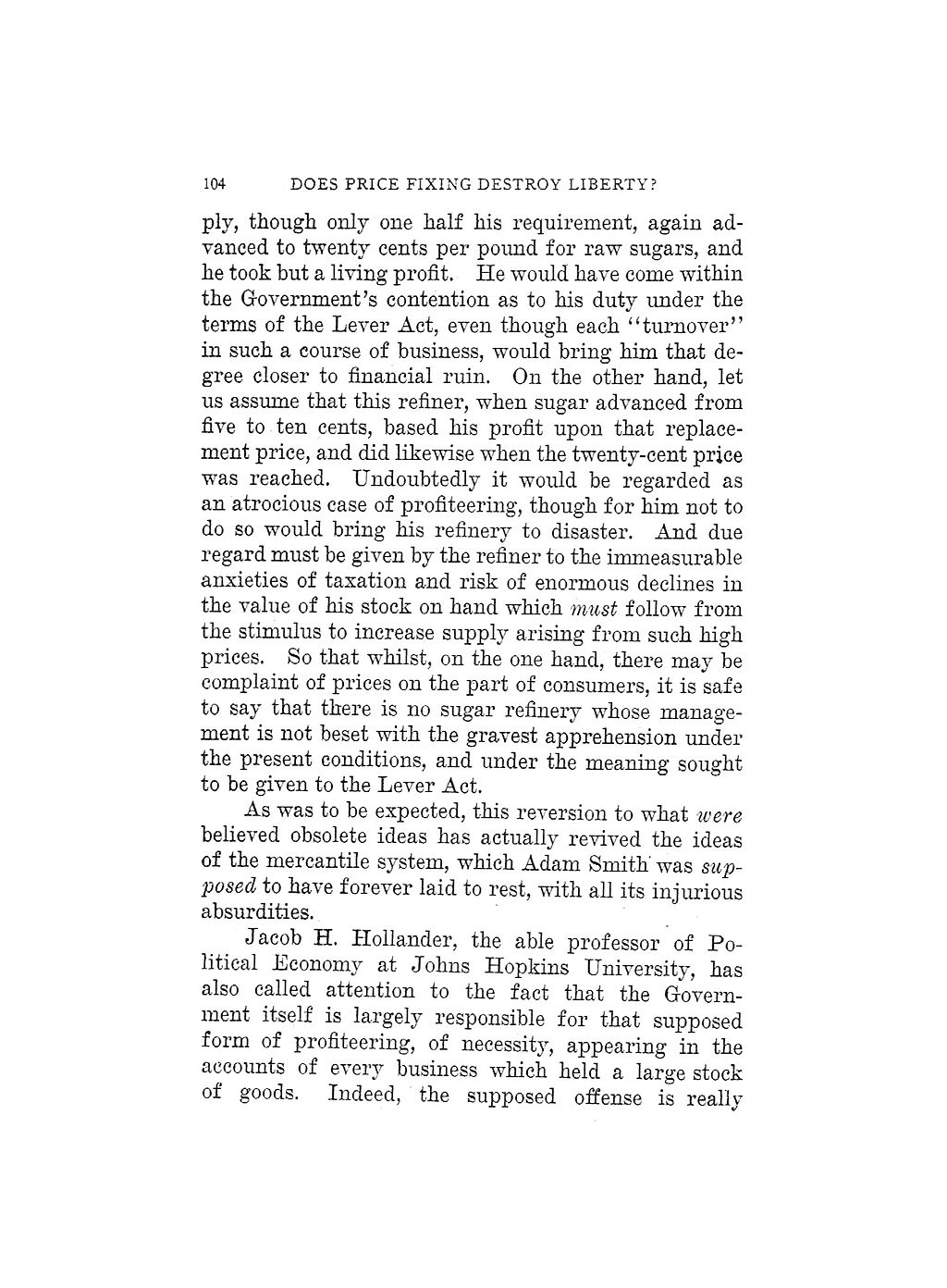ply, though only one half his requirement, again advanced to twenty cents per pound for raw sugars, and he took but a living profit. He would have come within the Government's contention as to his duty under the terms of the Lever Act, even though each "turnover" in such a course of business, would bring him that degree closer to financial ruin. On the other hand, let us assume that this refiner, when sugar advanced from five to ten cents, based his profit upon that replacement price, and did likewise when the twenty-cent price was reached. Undoubtedly it would be regarded as an atrocious case of profiteering, though for him not to do so would bring his refinery to disaster. And due regard must be given by the refiner to the immeasurable anxieties of taxation and risk of enormous declines in the value of his stock on hand which must follow from the stimulus to increase supply arising from such high prices. So that whilst, on the one hand, there may be complaint of prices on the part of consumers, it is safe to say that there is no sugar refinery whose management is not beset with the gravest apprehension under the present conditions, and under the meaning sought to be given to the Lever Act.
As was to be expected, this revision to what were believed obsolete ideas has actually revived the ideas of the mercantile system, which Adam Smith was supposed to have forever laid to rest, with all its injurious absurdities.
Jacob H. Hollander, the able professor of Political Economy at Johns Hopkins University, has also called attention to the fact that the Government itself is largely responsible for that supposed form of profiteering, of necessity, appearing in the accounts of every business which held a large stock of goods. Indeed, the supposed offense is really
